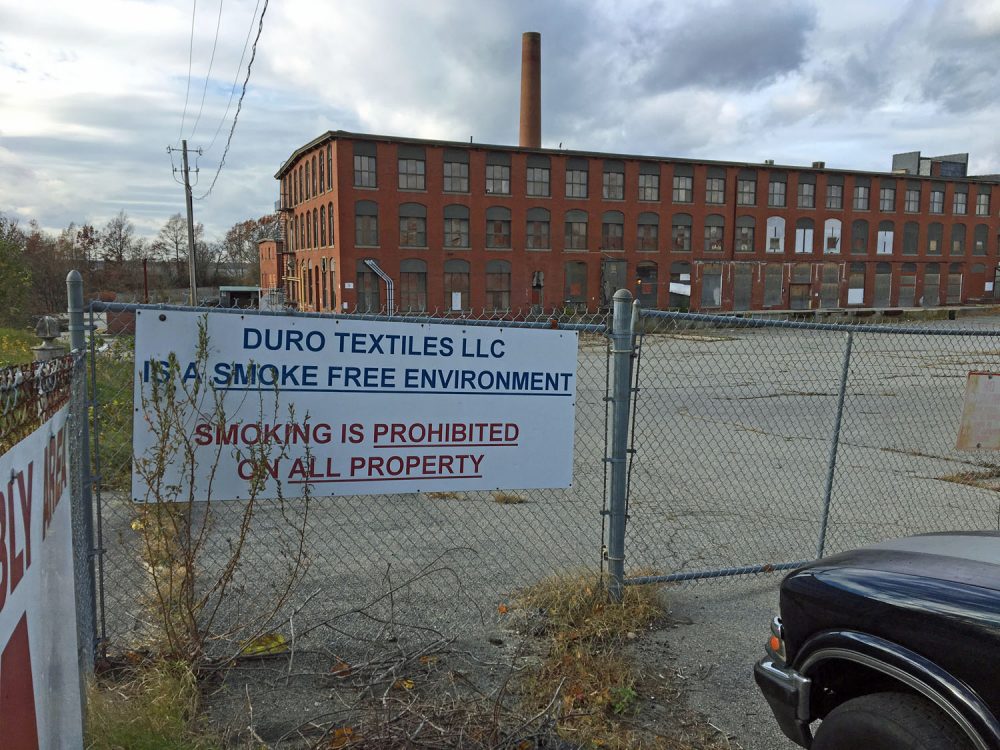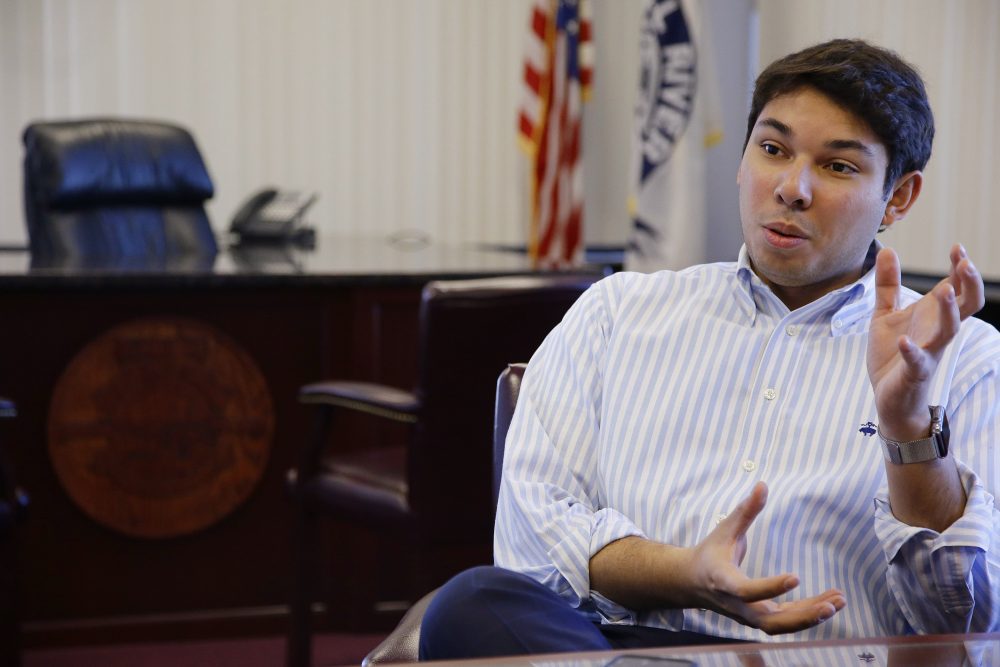Advertisement
Trump's Rhetoric On Trade Resonated With Some In Deep Blue Fall River
Although Massachusetts voted for Hillary Clinton, the presidential election showed that this state might be a little less blue than it once was.
A case in point: Fall River. Donald Trump's call to scrap or rewrite trade deals and bring manufacturing jobs back to America resonated in a city that was once a major textile producer.
Fall River has been called the bluest city in the bluest state. And just to be clear, on Election Day, it did vote for Clinton. But the Trump message that won over so many working class voters across the industrial Midwest appeals to the same kind of voters in cities like Fall River.
Here's Trump in the first presidential debate in September, blaming Clinton for global trade deals:
Your husband signed NAFTA, which was one of the worst things that ever happened to the manufacturing industry. You go to New England, to Ohio, to Pennsylvania, and you will see devastation. NAFTA is the worse trade deal maybe ever signed anywhere, but certainly ever signed in this country.
It's easy to find evidence of why Trump's message on trade found a receptive audience in Fall River, once home to a thriving textile industry. There's the sprawling red brick Duro textile factory building. Duro shut down last summer and its 157 workers were laid off. Today, the building is empty, surrounded by a metal cyclone fence, locked with a chain and padlock.

Like many in Fall River, Dan Botelho's parents were immigrants from Portugal. They ran a clothing manufacturing business, which Botelho says was killed by globalization in the time of NAFTA.
"We used to actually have good jobs that people could support their families on," Botelho said. "They weren't getting rich, but they could support their families."
Botelho is a political activist who ran unsuccessfully for Congress four years ago as an independent. In many ways he represents what might be called a nascent political shift in Fall River. He says people of his parents' generation are still majority blue, but his generation is changing.
"I think folks in my generation who see the kind of lives our parents were able to provide us versus the lives we're able to provide our own kids, it's turning us a little purple, into that red area," Botelho said. "Because we've been hearing all our lives, 'We want to help you, we want to help you.' Bill Clinton came to Fall River during his presidency. We sent him off with some chorizo. And that was it. More factories left."
Advertisement
So Botelho voted for Trump, attracted by his promise to renegotiate trade deals to help struggling manufacturing centers like Fall River. But Fall River's 24-year-old Democratic mayor, Jasiel Correia, says it's doubtful that Trump can bring lost factory jobs back to his city.
"I don't think you're going to see textile factories again booming with smokestacks running in Fall River. That's not going to happen, that's in the past," Correia said. "I think his intent is to renegotiate a lot of that stuff, but I think he'll find that's going to be very difficult to do in a globalized world."

Correia says you can debate whether global trade deals like NAFTA caused the decline of manufacturing in cities like Fall River. But he says NAFTA did coincide with the decline — which gave Trump a powerful argument among voters in his city.
"If you look at the broader base of Fall River, you see a manufacturing base that was once 15,000 people and now it's down to 4,000," Correia said. "The key to Donald Trump is that he was very good at crafting that message so that the exact cog fit the exact hole it needed to fit. That was what a lot of people listened to, really grabbed on to and went out to the polls and supported him for."
Although Clinton carried Fall River, Trump received 50 percent more support in the city than Mitt Romney did four years ago. He captured 36 percent of the vote — the highest vote tally by a Republican in the city since Richard Nixon ran in 1972. And Clinton's margin of victory in Fall River was the smallest for a Democrat in the past four decades. Trump did even better in other Massachusetts towns — particularly in the rural western part of the state with high numbers of white working class residents.
David Steinhof is a dentist in Fall River, a former Republican candidate for state representative and a Trump supporter. He sees the election as evidence of a political realignment in Massachusetts — even in places like once true-blue Fall River.
"We have a lot of conservatives down our way — a lot of people who will typically think conservative, act conservative, and then turn around and vote the Democratic liberal candidate simply because they think they have to vote the party line," Steinhof said. "Well now it's time to swing the pendulum in the other direction, and I think that could happen."
Maybe so. But Mayor Correia doesn't see this last election as evidence of Massachusetts becoming redder. After all, Clinton carried the state with 61 percent of the vote — about the same as Barack Obama in 2012 and 2008.
"This shift with Trump, and I really, really believe this: Trump was almost like his own party," Correia said.
Correia does see the election as evidence that Trump tapped into a powerful set of concerns among a segment of white working class voters across much of the country, including in his city.
This segment aired on November 23, 2016.
